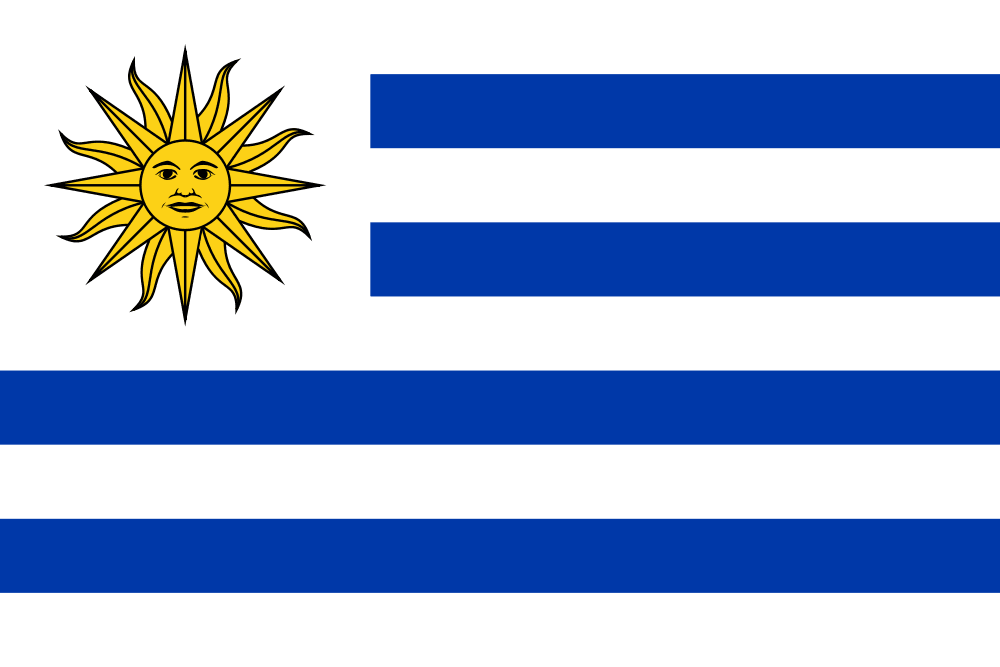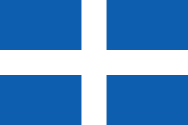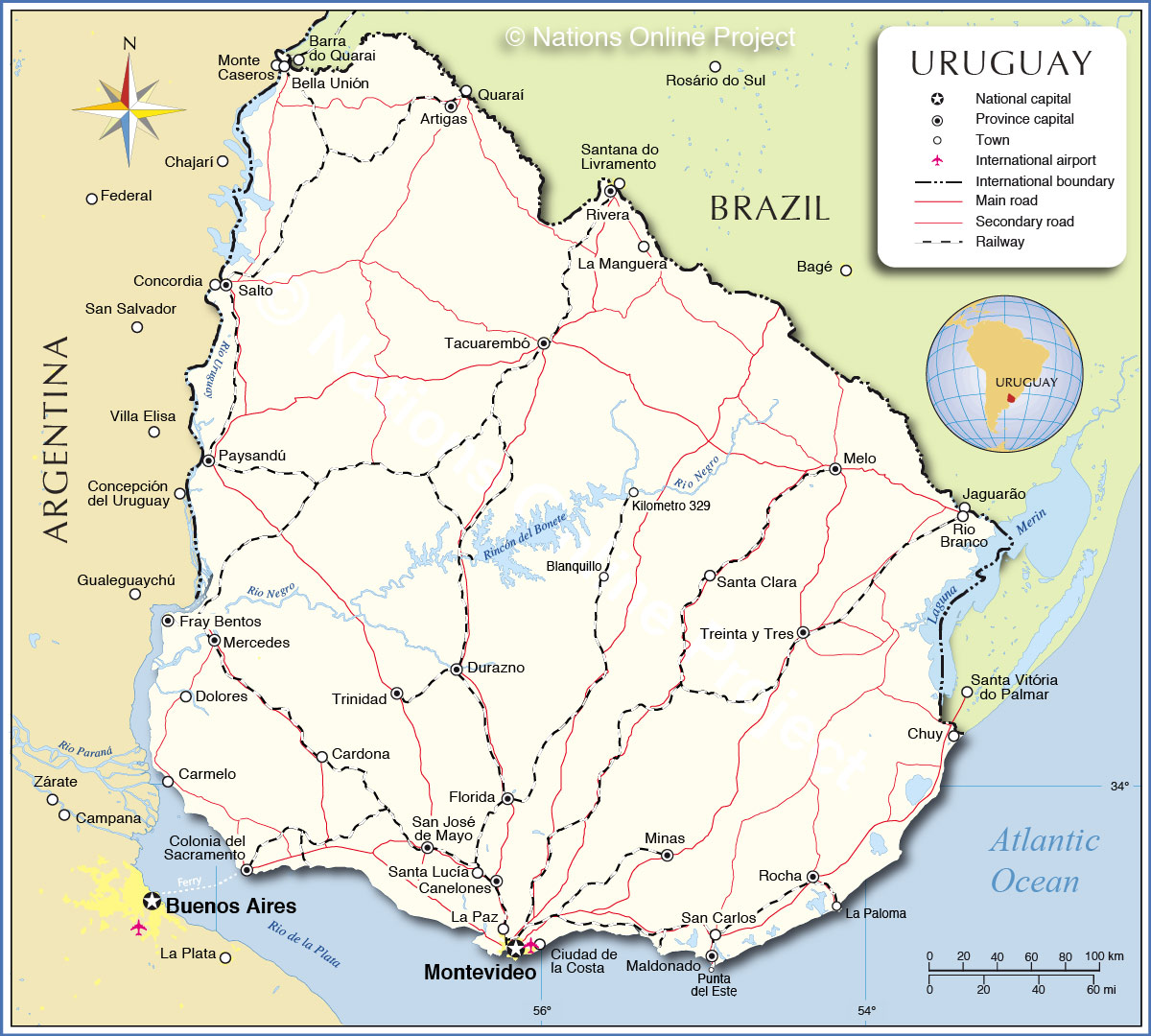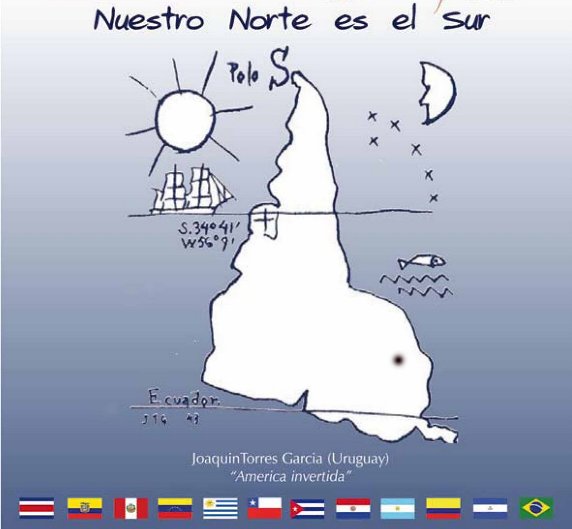
I was in Uruguay from April 14th to 27th!
It was my first time to cross the Atlantic, indeed the farthest I’d been from home since my last time in Australia in 2002.
What took me to the second-smallest country in South America was yet another you-only-pay-30%-of-travel-costs European youth project. This one’s called Grassroots Youth Democracy. In it, youth from Greece, Italy, Ecuador, Uruguay, India and Mauritius will participate in joint research on the water context of each participating country, which in turn will culminate in a media product and relevant campaign to raise awareness on the issue of water as a basic human right and common good.
Grassroots Youth Democracy is separated in phases and will take most of our time for the rest of 2015. Phase 1, which was the purpose of the trip I just came back from, was a week-long seminar on water rights in general. Participants had the chance to make presentations of what the water context in their specific countries is, and we also made a first draft of the plan we’re going to use for organising this international campaign between ourselves: who’s gonna do what, what our research methodology will be, what we’re going to with the data etc. After all, co-ordinating a local team can be hard; one strewn across four different continents? Yeah.
Phase 2 will take place in May in Rome and will consist of a media seminar: teaching the participants how to use a camera, do interviews, edit videos, update a website and such things I have the skills to help with. Thank you, University of the Aegean!
Phase 3, which will start right after Rome and last until mid-July, will have the participants from the extra-EU countries come to Greece or Italy and do a field research on the water situation in the respective country, that is collect data for articles, videos and other material to be used in the campaign. There will be interviews with NGOs, analysing stats and delving into the unique water-specific problems of that country. In Greece, for example, the participants will look into what happened with EYATH and its privatisation and how it was avoided by the resistance of the civil society through the 2014 unofficial referendum. They will also research the problem of the lack of drinking water in some Greek islands, such as Aegina, and the sometimes even more problematic solutions corrupted authorities have come up with to alleviate the situation. These are just some examples.
Phase 4 will start right after Phase 3 and last until September. Basically it will be like Phase 3, only the other way around: the Italians and the Greeks, of which there’s four of each, will do the same kind of field research in pairs in Uruguay, Ecuador, Mauritius and India. This is when I’m going back to Uruguay for two months, during the southern heart of winter! No Greek summer for me this year.
After all the above, we’ll collect all the data we’ll have got and make something out of it: a small book, an online database, a documentary, a social media assault… a little bit of everything. This will be our awareness campaign (and I hope it will end up a little bit more exciting than I’m afraid I’m making it sound here.) There will be a final conference/presentation of results but not a lot is known about it yet.
To be perfectly honest, Phase 1 in Montevideo, the one that just finished, needed more outdoors activities. The presentations and material discussed on water issues were interesting and our team-building was successful, but after a certain point I found it hard to concentrate on Powerpoint after Powerpoint and group brain-storming activity after group brain-storming activity. Being in the same room for hours on end with little chance of going out in the warm Autumn sun apart from during the short coffee breaks and the lunch (which was admittedly DELICIOUS and very vegetarian-friendly—THANK YOU CRAZY MARIO, cook of La Fonda!) made it much worse. During the first few days we saw practically zero of the city and at the end of each session I felt much more exhausted than I believe I should have.
No matter. In the end it was a valuable getting-to-know-you with the team and we did some important work. We will just have to work hard from here on out.
…what? You want to read about Montevideo and Uruguay, NOT the seminar? What are you, crazy?!
OK, get this: Uruguay is an extremely interesting country, given its small size and low importance on the grand scale of things. Sorry, let me rephrase that, because everything that’s ever taken place on this planet is of extremely low importance on the grand scale of things—low importance as far as human societies go; countries, politics… you know, that sort of thing. I mean, what do you know about Uruguay?
What I knew was that the country’s (now ex-) president donated 90% of his salary to charity and generally lived super simply, and that recently they legalised marijuana. That’s pretty much everything /r/worldnews would let through the filter. Ahem…
Let me tell you: both of these things are true.
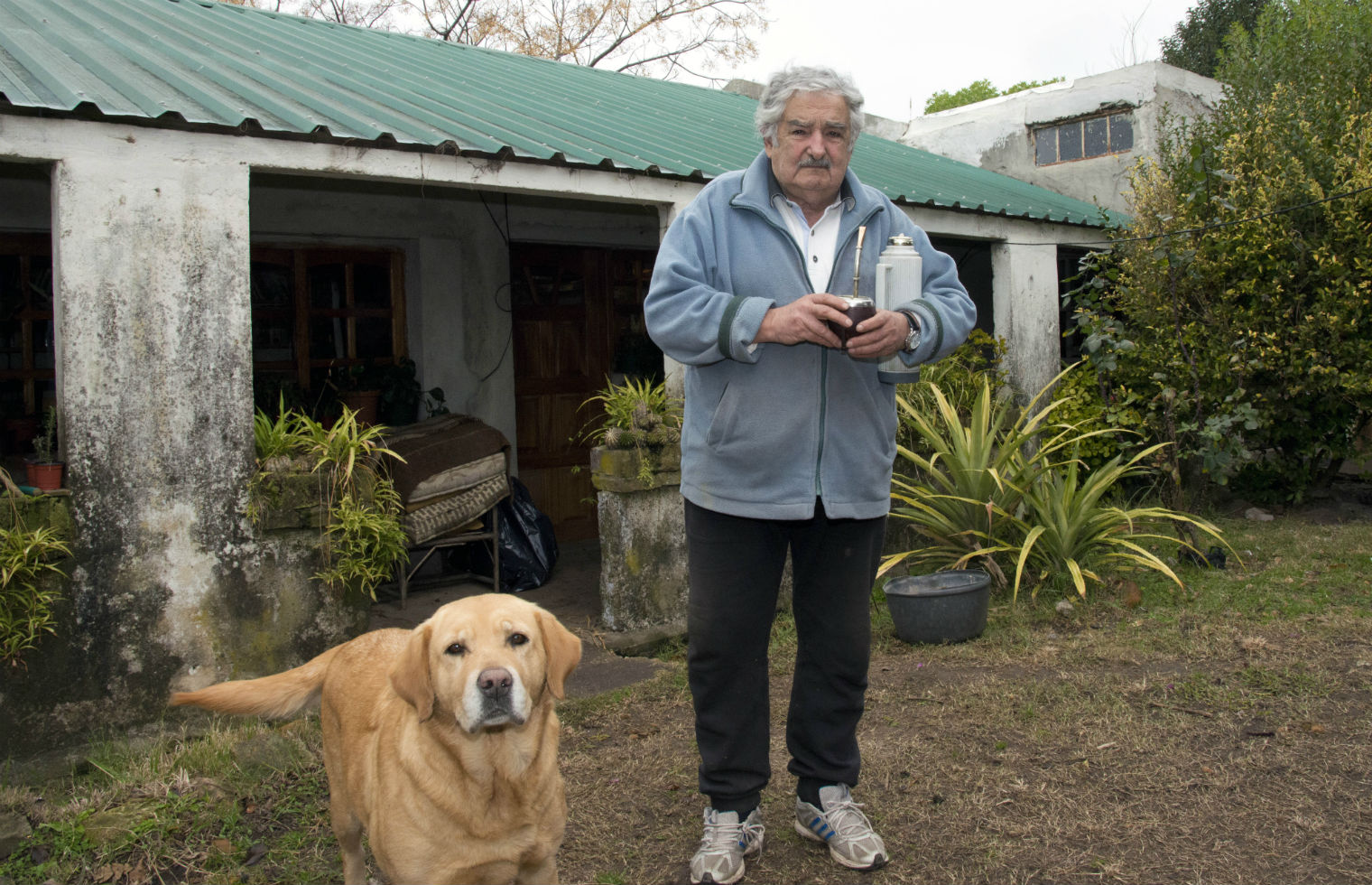
José “Pepe” Mujica is seen as a bit of a populist in Uruguay itself, but here are eight reasons why he should be missed by the rest of us, according to The Independent:
1. He donated 90% of his salary to charity.
2. And lived on a farm.
3. He drives a 1987 VW Beetle.
4. And picks up hitch-hikers.
5. He legalised marijuana.
6. He leaves the economy in rude health.
7. He’s just not like other politicians
8. And all that after being shot six times and being put in jail for 14 years for opposing the country’s former dictatorship.
Have a look at the article for a few more details, it’s worth it. What are the chances a guy like this could ever be the leader of your country?

Now, that other thing. “You know that in Uruguay marijuana was recently legalised, don’t you?”, said one of the Uruguayan participants to me before I could even ask her anything about it. “Everybody does it here. Even ten years ago people in suits would light one up after work. The thing is, you can’t go somewhere to buy it. Not like that. You have to be a resident and a member of a marijuana club if you want to purchase it. But many people have a little plant or two at home and will soon offer you some!”
I suppose the above is true for young people, but who knows? It didn’t seem to me that marijuana use was 100% socially accepted in Uruguay, there must be some controversy remaining, but it looked close to it. I say they have the right idea. There really is zero reason marijuana should be as illegal as it is in such big part of the world. Zero. Addiction-related issues, whenever they arise, should be treated medically and psychologically, similar to the way alcoholism is treated, not be a matter of concern for law enforcement. This system has already been adopted in a lot of countries. Have a look at this map caught from the wikipedia article on the legality of cannabis around the world:
But there’s a bit more to Uruguay than that.
What does this flag remind you of? They have the same number of stripes, too. Want another fun fact that goes with the similarity between the flags? Both Uruguay and Greece were de facto created in 1828. But, as I learned recently, the Greek flag as we know it now was standardised during the military dictatorship. Before that it used to be simply this:
This was the state flag and the one we use now was the merchant and national flag, before the former was abolished completely.
Back to the other country with blue and white stripes on its flag.
Uruguay’s name comes from the river forming the natural border between it and Argentina. It is the indigenous Guaraní language for “the river where the painted birds live.” Beautiful image, isn’t it? It flows out into the that bay to the left of the map, the famous Río de la Plata — the river plate. It’s a hallmark and a point of reference for both Argentina and Uruguay. Some consider this formation more of a river delta than a bay, but really it’s somewhere in between: in Montevideo and even as far out as Punta del Este, the water is much less salty than normal. There’s no clear point where the río ends and the sea starts. Truly a unique formation.
Next: a brief overview of the country in video form. This video was funded by the Uruguayan Ministry of Tourism. I’m serious.
Uruguay es el mejor país: Uruguay is the best country. A semiotically complete touristic message if I ever saw one. We should try something like that back home.
In fact, there’s plenty of other policy “novelties” this country has going for it we should be trying out in Greece. Barring the relatively high cost of living, the not-too-great wages and the kind of plain landscapes (heh), in a few ways it really is one of the best countries out there. For a start, they have managed to stave off privatisation of their public sector almost completely, only selling off their mobile phone operators. Water itself has become a constitutionally-reserved state-managed human right since a relevant referendum was conducted in 2004. That’s impressive no matter what way you look at it. In addition, same-sex marriage has been legal for two years.
All the above together puts most of the “progressive world” to shame, let alone our backwards little country called Greece. Then again, Uruguay is a secular society, in stark contrast to our country where the embarrassingly rich church is still constitutionally connected to the state, which, just to remind you, means that Orthodox Christianity is taught at schools, priests are paid with our hard-earned IMF and European loan money (and pay no tax in return) and the country is still, for all intents and purposes, exclusively Orthodox. I won’t get started with nationalism and Greek superiority/inferiority complexes…
Tell me, how many people would you imagine enjoy the benefits of living in this little country? It’s whole population is barely that of Athens at ~3.5 million people, with roughly half of that concentrated in Montevideo. This bit surprised me, because I’ve always thought of South America as the land of mega cities. To illustrate, nearby Buenos Aires has a metro population of almost 4 times that of Uruguay as a whole, and Sao Paulo, which isn’t such a long way away either, is close to 6 times that.
For its modest count of human residents, this small country is the holder of a different record: it has the most cattle-per-capita ratio in the world: there are roughly 3.59 Uruguayan cows for each Uruguayan person. Impressive as that may be, note that this number still collectively accounts for just ~1% of global bovine populations.
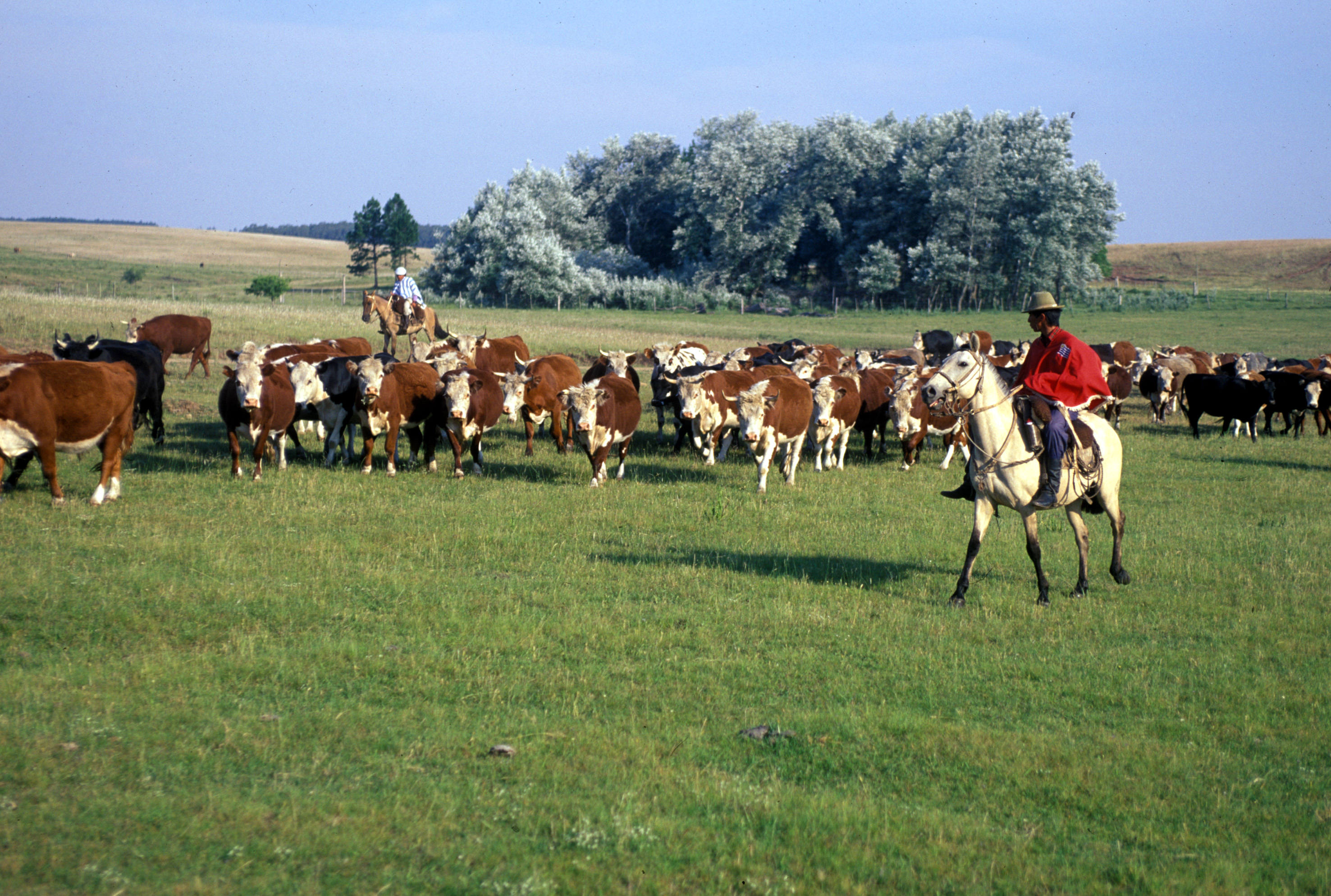
With so much mooing going on, you’d think the guys would have some decent yogurt. Nope… Even the “integral” yogurt, the one most similar to consistency to the ones we enjoy in Greece, contained sugar. This reminded me of Bulgaria, which most Bulgarians claim to have fantastic yogurt—supposedly very successful and sought after in South Korea. Needless to say, this legendary Bulgarian dairy product is nowhere to be found, or perhaps I tried it and just couldn’t tell the difference. What can I say, years of straggisto are bound to leave a mark.
Not all Uruguayan products are shoddy, though. Far from it. Mate (pronounced máte) is for Uruguayans what frappé is for Greeks, or, according to some Greeks, what it used to be, as freddo espressos have become more popular. Mate is an invigorating hot drink, like coffee or tea, ideally shared among a circle of friends. People drink it in wooden cups that slightly look like coconut shells but are made of gourd (or calabash). In it they drink the mate herb tea, which they infuse with hot water poured from a thermos and refill many times. It is drunk with a metal straw-like instrument called a bombilla (pronounced bombisha in Rioplatense Spanish). In the video below you can see an English speaker preparing mate.
I think I’ve written enough for now. I congratulate you if you made it this far! Here are some pictures for your viewing pleasure, half of which are taken by me and the others by Martina.
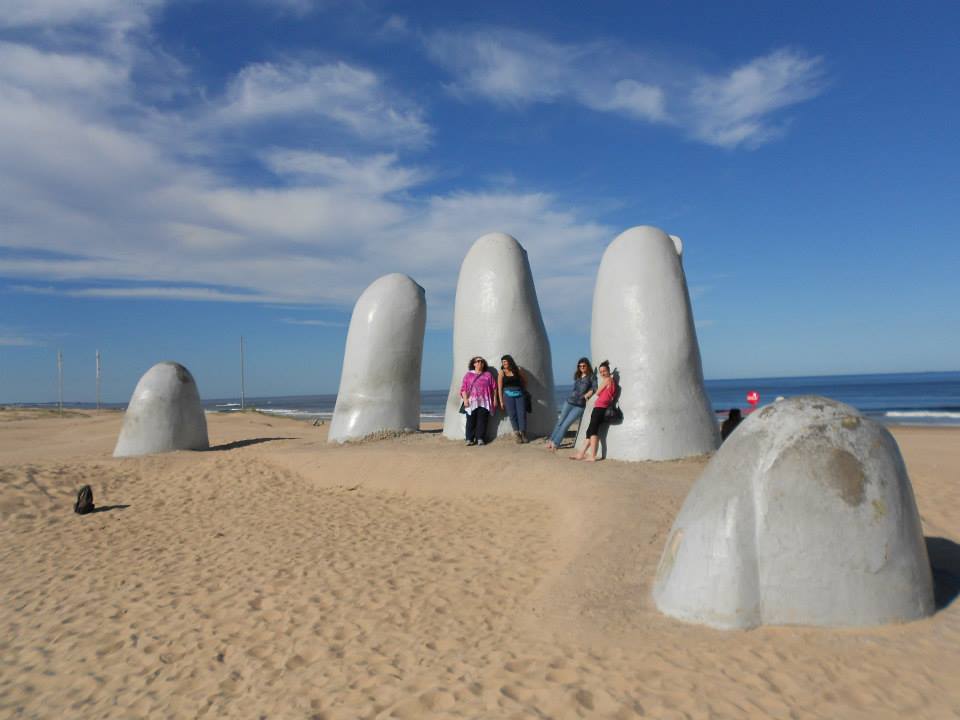
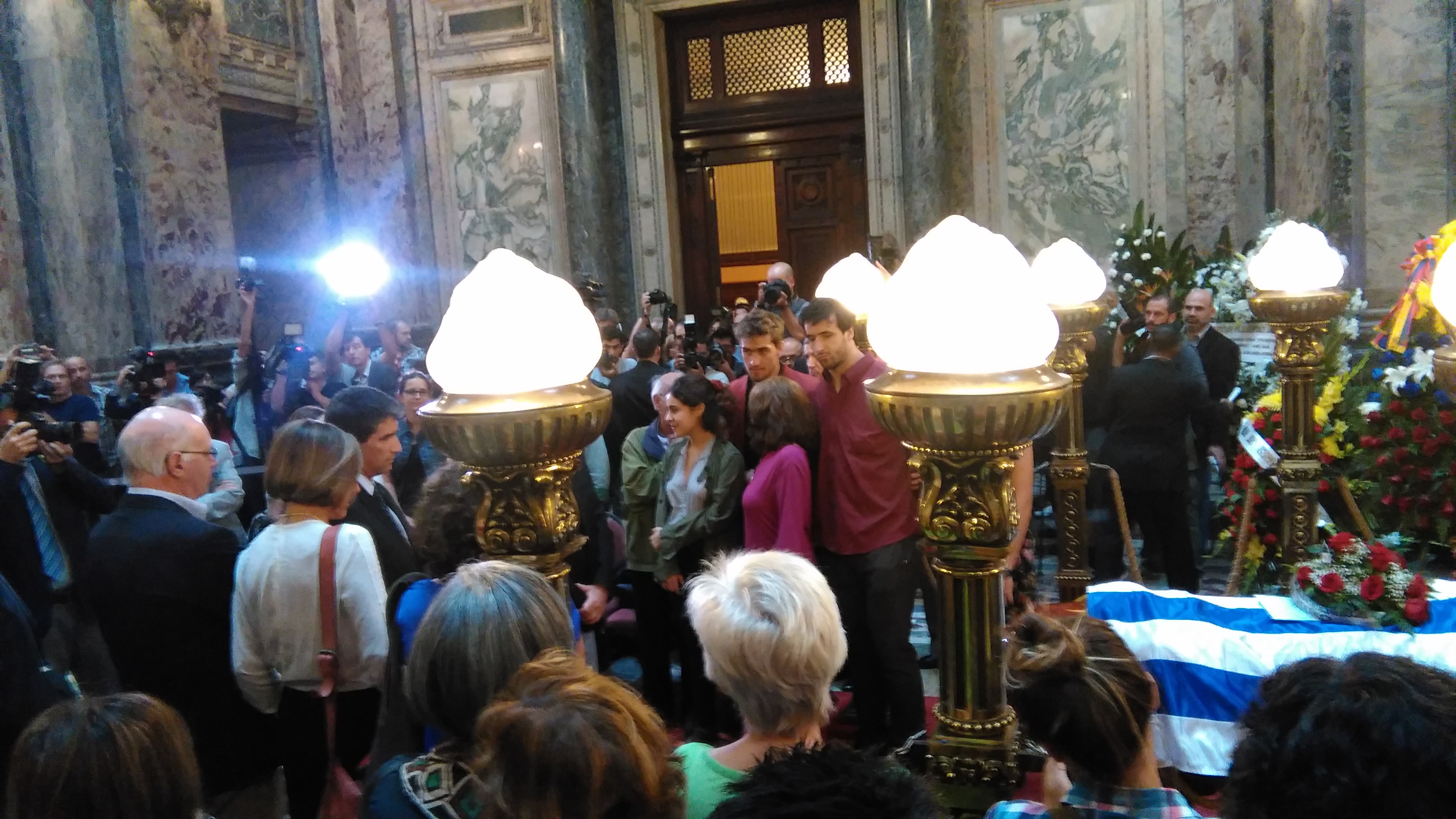

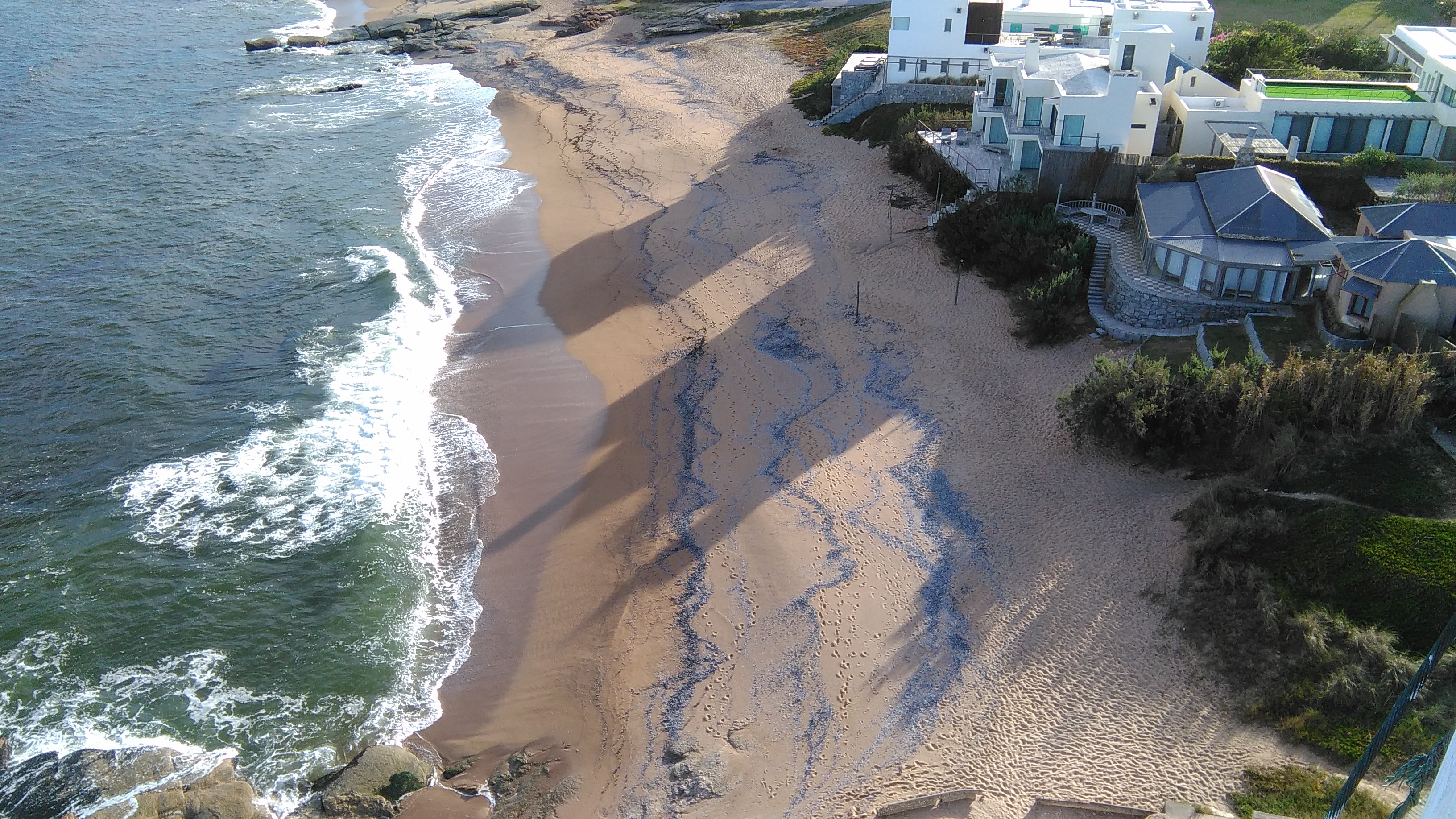
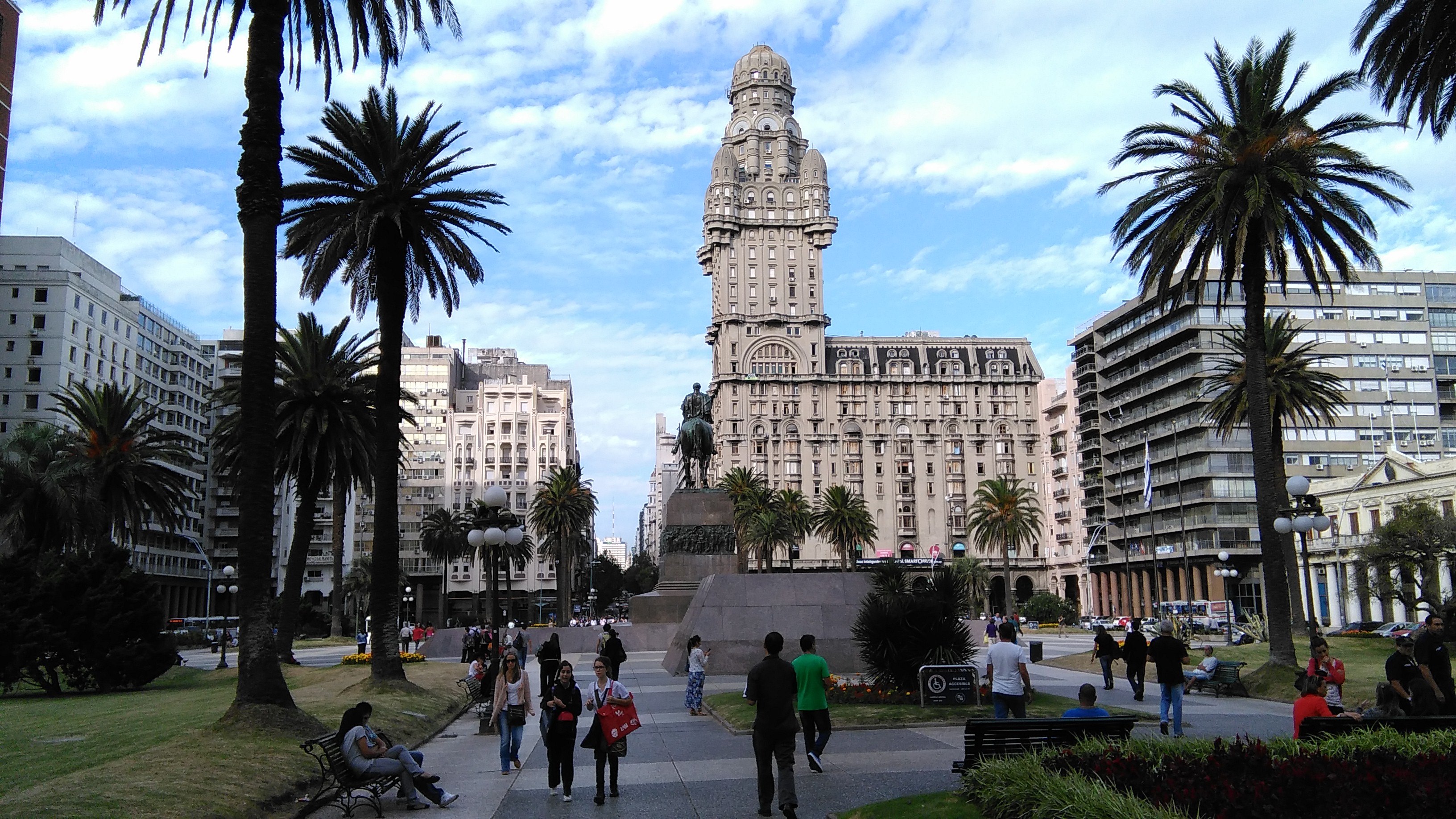
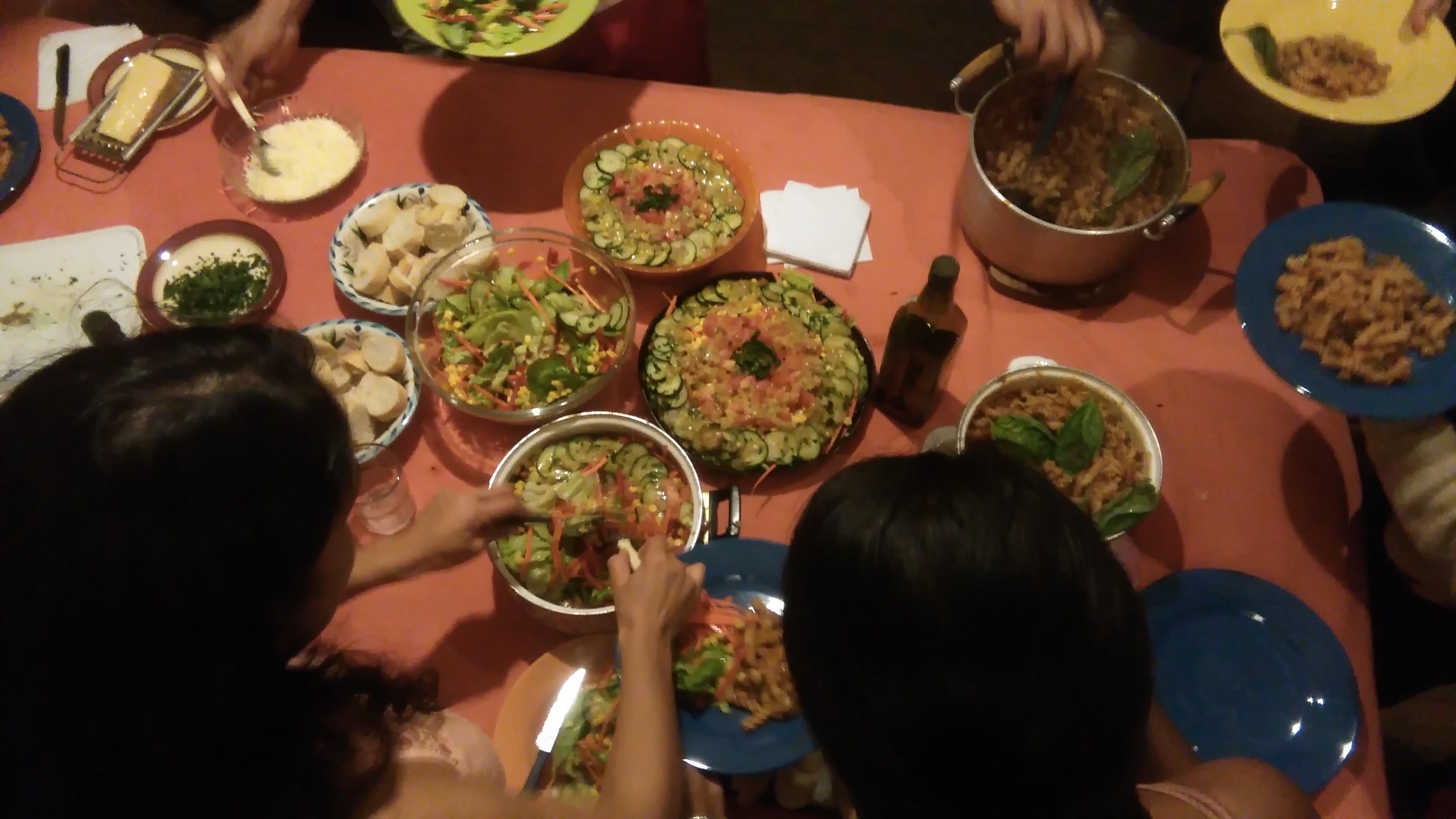
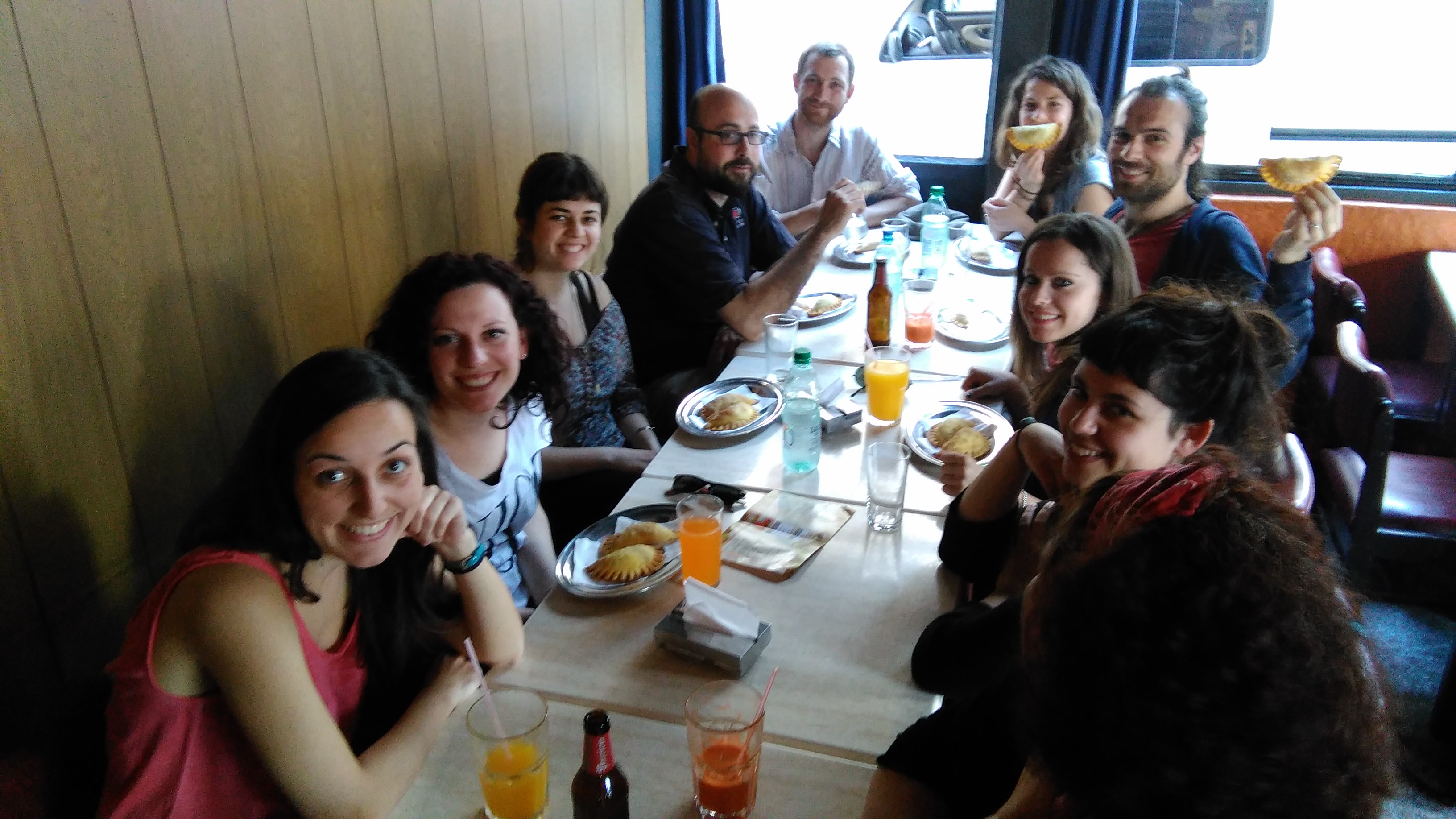
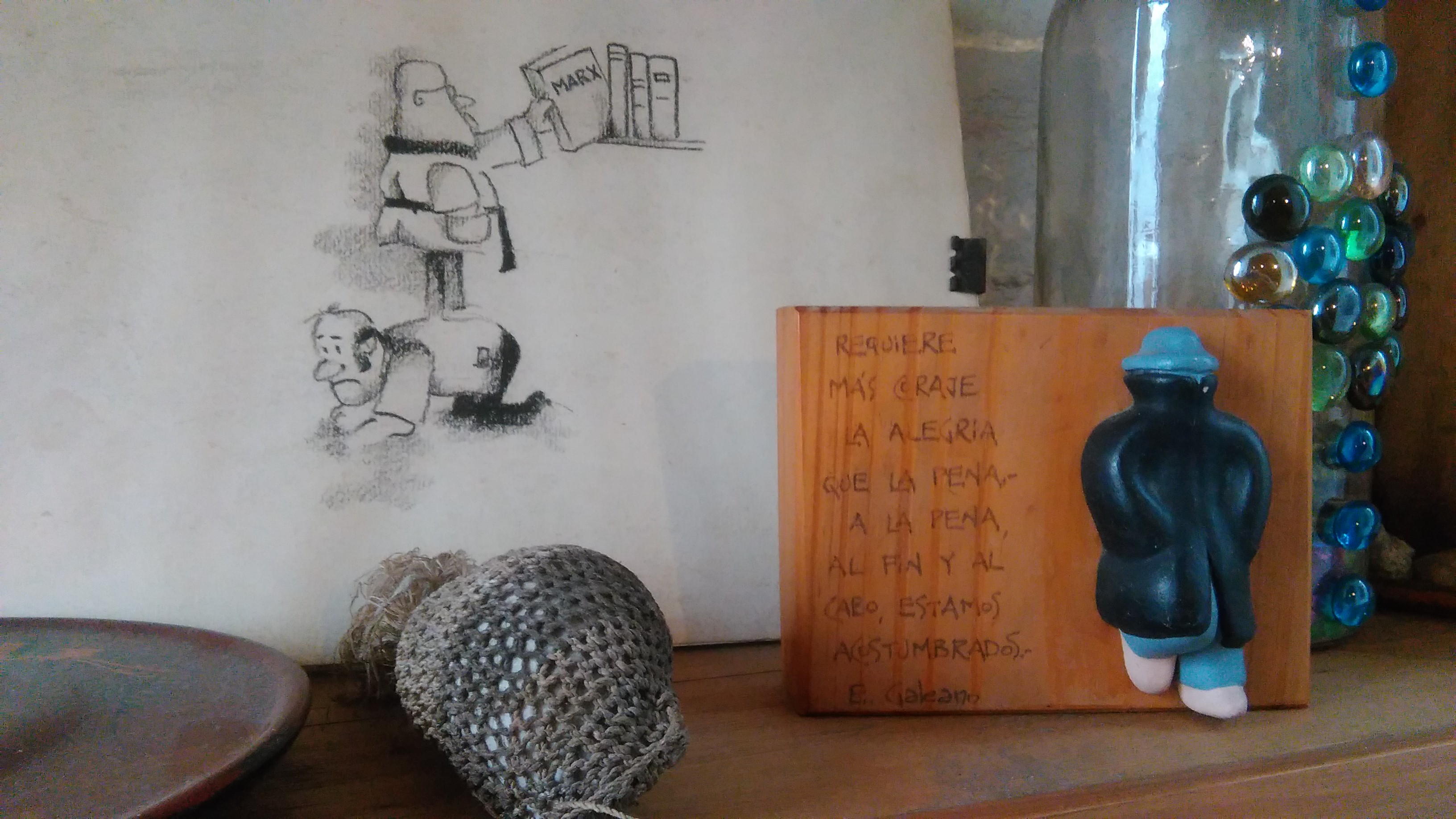
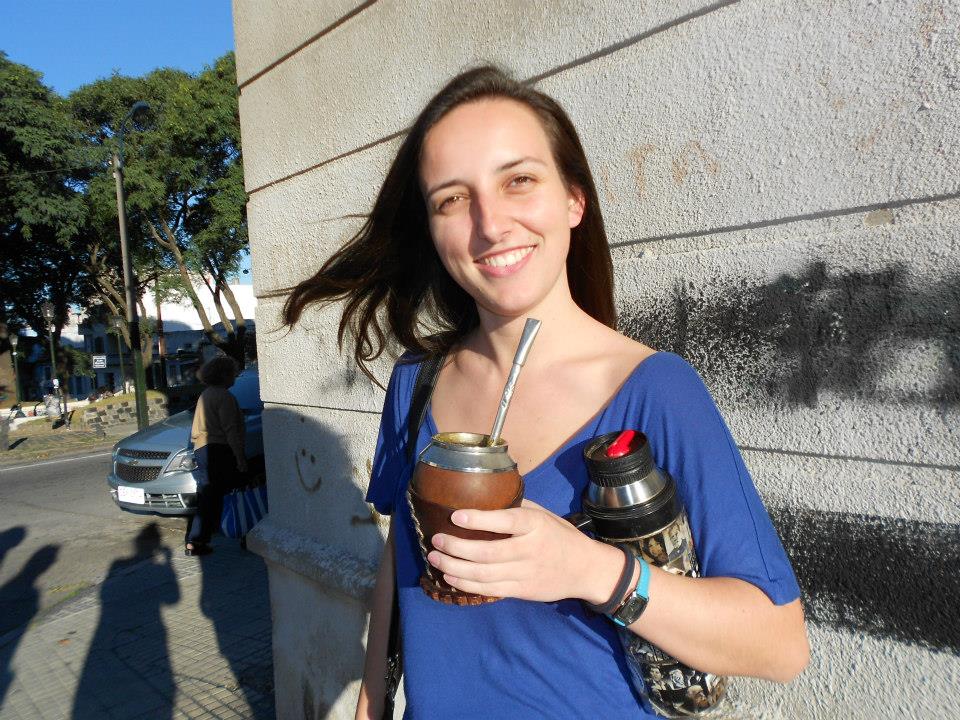
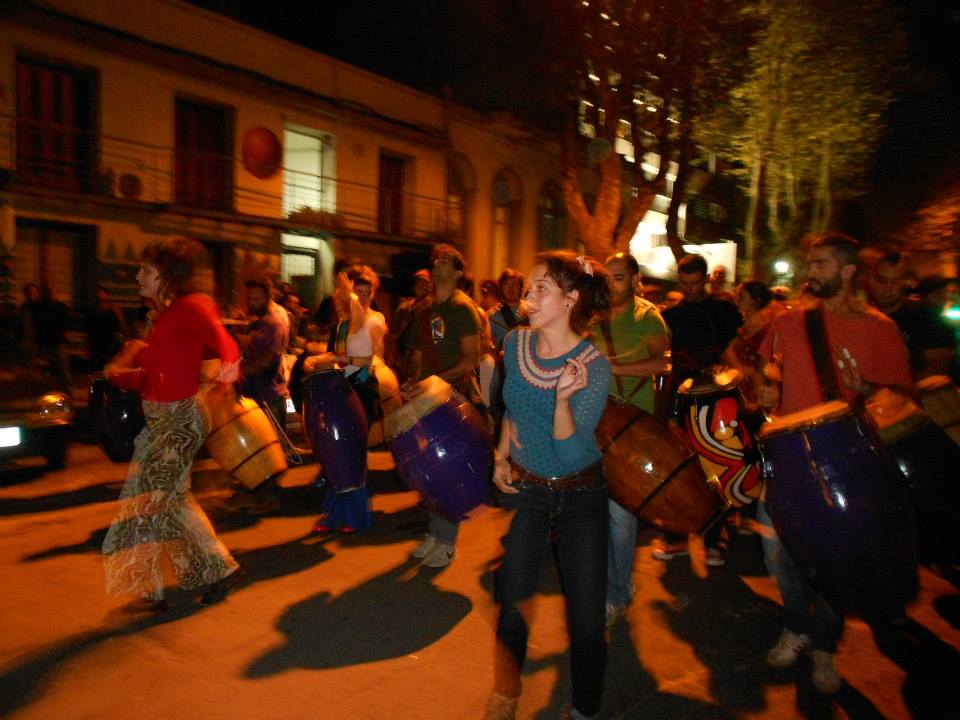
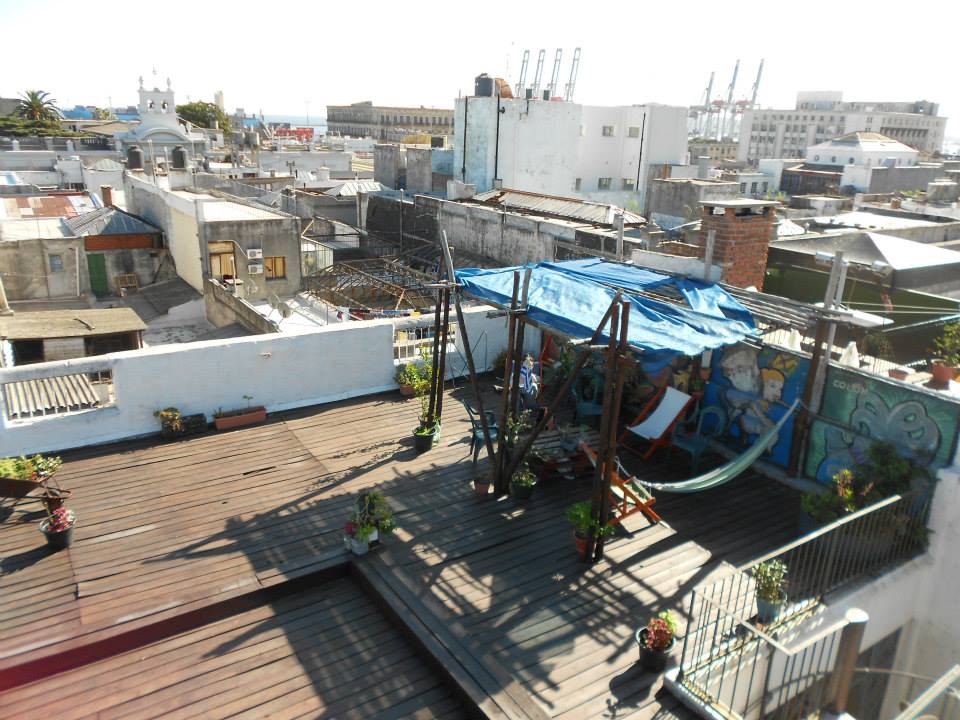
For dessert:
There is a Milonga at the centre of Montevideo, a public place where people of all ages meet a few times per week to dance and learn Tango.
The song below can be heard most evening at the Milonga and, as I was told, features in the playlists of most tango meetings. It’s called the “Greek tango.” I’m sure you know it.


